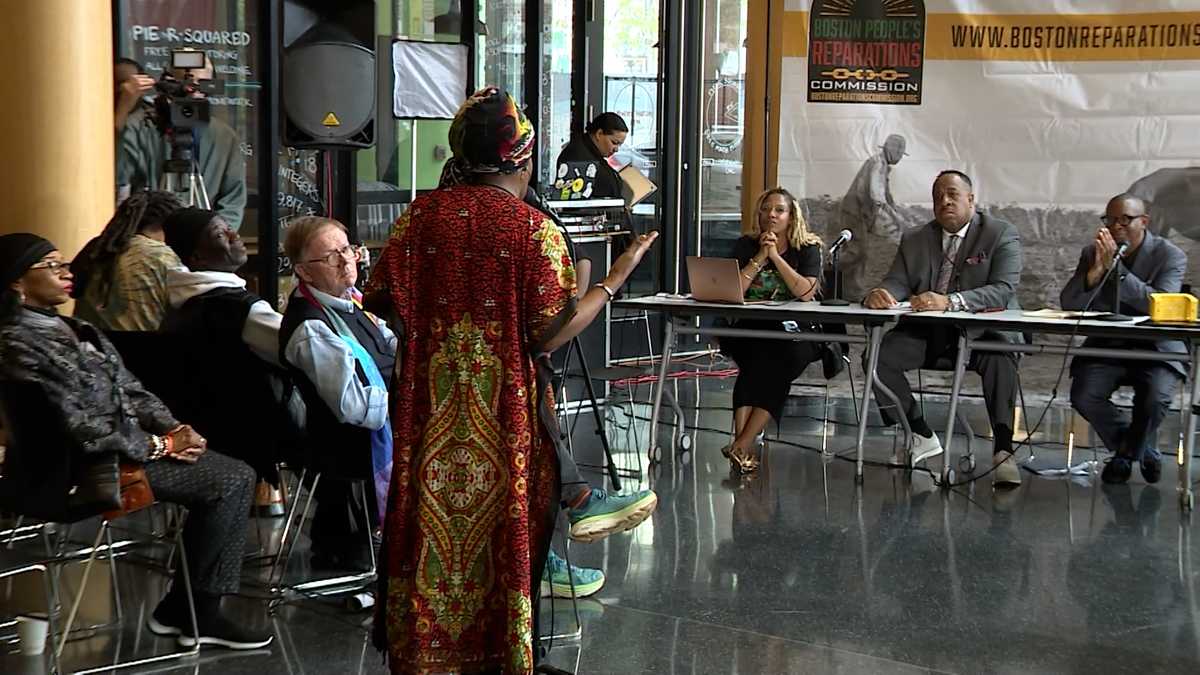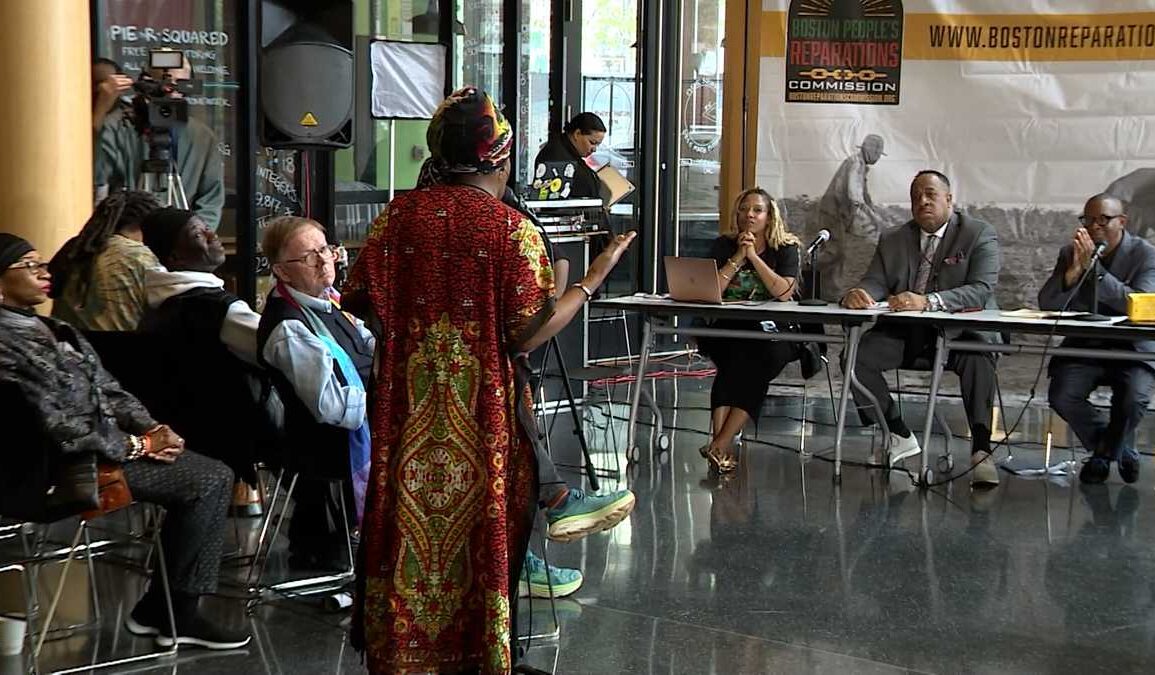
Approximately 200 people attended a meeting in Boston’s Roxbury neighborhood on Saturday. It was hosted by a grassroots group to discuss the topic of reparations for African Americans in the city.The Boston People’s Reparations Commission held the meeting at the Bolling Building in Nubian Square, where members of the city’s African American community shared with the group what reparations means to them.”Reparations is cash. It’s land. It’s education. It’s these other functions that are included. It’s not just money,” said Boston resident Nick Johnson.Charles Yancey, who served on the Boston City Council from 1984 through 2015, said slaves in the U.S. were once promised their share of the wealth once the Civil War was over.”That has yet to happen,” Yancey said. “Let’s set the tone for the United States of America right here in the city of Boston.” The Rev. Kevin Peterson, head of the BPRC, said the commission is in discussions with leaders of white churches in Boston to invest $50 million into the city’s Black community, but that is far from the figure of $15 billion the commission is seeking from the city for its role in slavery. “Fifteen billion (dollars), which is not enough. Every life is incalculable. We think about tens of thousands of slaves who died in the midst of slavery in Boston. How do you put a number on that?” Peterson said. “They died in slavery while their white counterparts flourished.”In January, Mayor Michelle Wu established the Boston Reparations Task Force to research and document the city’s role in and historical ties to the transatlantic slave trade and the institution and legacies of slavery. Previous coverage:
Approximately 200 people attended a meeting in Boston’s Roxbury neighborhood on Saturday. It was hosted by a grassroots group to discuss the topic of reparations for African Americans in the city.
The Boston People’s Reparations Commission held the meeting at the Bolling Building in Nubian Square, where members of the city’s African American community shared with the group what reparations means to them.
Advertisement
“Reparations is cash. It’s land. It’s education. It’s these other functions that are included. It’s not just money,” said Boston resident Nick Johnson.
Charles Yancey, who served on the Boston City Council from 1984 through 2015, said slaves in the U.S. were once promised their share of the wealth once the Civil War was over.
“That has yet to happen,” Yancey said. “Let’s set the tone for the United States of America right here in the city of Boston.”
The Rev. Kevin Peterson, head of the BPRC, said the commission is in discussions with leaders of white churches in Boston to invest $50 million into the city’s Black community, but that is far from the figure of $15 billion the commission is seeking from the city for its role in slavery.
“Fifteen billion (dollars), which is not enough. Every life is incalculable. We think about tens of thousands of slaves who died in the midst of slavery in Boston. How do you put a number on that?” Peterson said. “They died in slavery while their white counterparts flourished.”
In January, Mayor Michelle Wu established the Boston Reparations Task Force to research and document the city’s role in and historical ties to the transatlantic slave trade and the institution and legacies of slavery.


